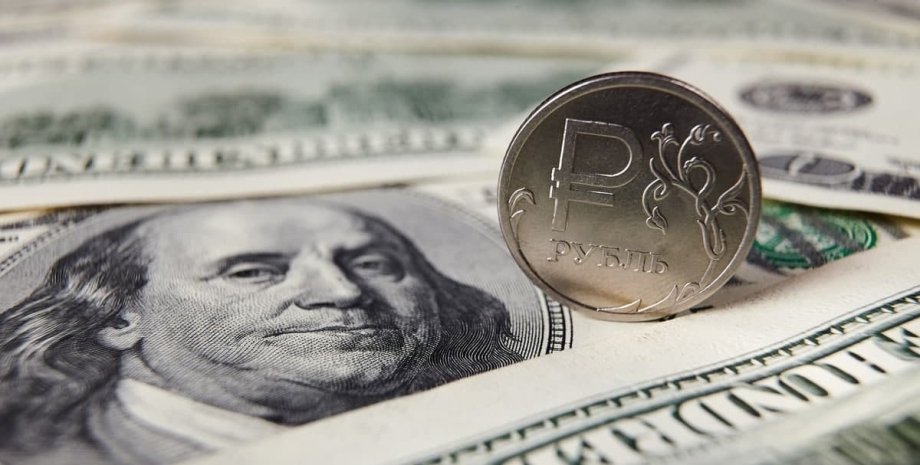
 By Victor Duda
By Victor Duda
The volumes of foreign trade with such key partners as Turkey and China in the first quarter of 2024 have decreased significantly after the introduction of US sanctions on large international banks that help the Russian Federation to buy critically important double -use goods. Financial Times writes about it with reference to American officials.
Now, according to the publication, Russia's financial flows in both directions have been much more complicated, as banks are afraid of the consequences of US secondary sanctions that can track any transaction in dollars and cross out banks from the world financial system. Restrictions on payments have had a deterrent to the shadow components for the Russian MIC, since banks instead of breaking US sanctions, stopped whole categories of transactions with Moscow.
Banking institutions that have previously worked with Russian companies now refuse them, avoid transactions in different currencies, and close accounts. "Russia has become more difficult to access the financial services needed to obtain important goods for Russia. Certainly, the goal is to significantly complicate the movement of this money, to increase costs for Russians and friction in the system.
A break is an important result," - said Anna Morris, Deputy Assistant to the US Finance Minister for International Affairs. Therefore, the Russian business, according to FT insiders, tries to build a network of intermediaries as soon as possible, which allow to avoid inspections by regulatory authorities, even if the payment does not have nothing to do with Russia's military machine.
At the same time, this increases the amount of payments, including the cost of conversion of currency and commissions. "Every month becomes more difficult and heavier. In one month - in dollars, the next - in euro; for six months you will not be able to do anything in principle. The logical end point of this is the transformation of Russia into Iran," said Russian close to power The investor, referring to strict financial sanctions against Tehran.
Recall that the US Ministry of Finance on May 1 declared sanctions against almost 200 individuals and legal entities that contribute to the Russian Security Service of Ukraine and help it to evade existing restrictions. Earlier, the United States expanded the sanction list by introducing companies from Russia, China and the United Arab Emirates.
According to Trade Data Monitor, the newspaper writes, in 2023, the amount of exports of critical goods for the warfare of the war reached the Russian Federation and five more post -Soviet republics of huge scale - $ 586 million, which is 5 times more than the pre -war volumes.
However, according to FT, for the first three months of this year, exports of Turkish goods to the Russian Federation, which are mostly for civilian use, but recognized as critical for hostilities, such as microchipi, fell by one third in the annual calculation-up to 2. 1 billion dollars. And the value of the declared exports to Russia and neighboring countries fell by 40% - to $ 93 million. All these data indicate the power of the influence of US sanctions.
At the same time, Russian traders turned to smaller banks and alternative currencies. In addition, according to Matis Myker, the head of the Estonia Financial Intelligence Unit, more complex transactions are at risk of confusing Western regulators from the panther who are hunting for commerce, as Russian enterprises and their counterparties add more transactions that share the buyer and the seller.
"If you have four banks in a chain, it means that there are several payments related to one transaction that has previously moved simply with A B B when the money passes between users. There are so many banks in the world - they will find a new way to bypass sanctions, " - explained Myker. He added that this increases the cost of transactions, but at the same time complicates their timely consideration by law enforcement agencies.
In addition, Russian importers and exporters are also increasingly concluded in rubles due to difficulties with currency exchange for dollars and euros - before the war of 2022, less than 15% of Russian exports were paid in rubles, but since February 2024 the share of currency has increased to 40%. Moreover, the highest leap was recorded after the introduction of US sanctions.
As one well -known Russian banker noticed, the ruble will be "the main currency in the sub -correspondence of Russia, because this is the only way to guarantee that (management for control over foreign assets of the US Department of Finance. - Ed. ) Will not see it. " According to the Central Bank of Russia, cross -border payments are increasingly made in rubles, while the use of currencies of China, Turkey and the UAE is reduced.
By import, payments in rubles increased to about 40% of the pre -war level by 30%. However, according to FT, the limited convertibility of the ruble prevents Russian banks and counterparties to compensate for the lost volume of trade in dollars and other western currencies. Recall that the EU prepares the 14th package of sanctions against the Russian Federation and Belarus.










All rights reserved IN-Ukraine.info - 2022